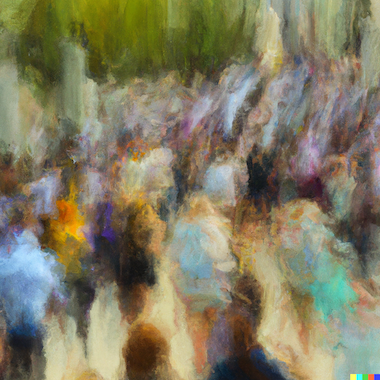Workshop on mobility data in urban science - Report (27-28 Oct.)
Alan Turing Workshop - Report, 2021
Rowe, Francisco, Daniel Arribas-Bel, Alessia Calafiore, Martin Fleischmann, Krasen Samardzhiev, and Jacob L. Macdonald. (2021). "Workshop on mobility data in urban science - Report (27-28 Oct.); Alan Turing Workshop - Report
https://www.turing.ac.uk/research/publications/workshop-mobility-data-urban-science-workshop-report

Abstract
The workshop produced a number of key outputs. A series of talks were delivered during the first day of the workshop, showcasing ongoing and state-of-the-art work on human mobility and behaviour, and the use of mobility data in urban science. Talks were delivered by researchers from six different institutions, including ISI Foundation, MIT, ETH, University of Leeds, University of Liverpool, UCL from four different countries. Presentations were recorded and are available on the GDSL YouTube channel.
Key reflections were obtained from discussions with 13 scholars with expertise in the use of mobility data during the second day of the workshop. First, participants identified key tools, methods and common practises in the use of new forms of data to capture human movement. Key issues around data access, validation, privacy and practises were identified, and potential solutions to address these issues were discussed. Second, a broad range of applications for mobility data were identified in the context of public health, urban transport and infrastructure planning, climate change and urban density patterns. Finally participants discussed key areas of future endeavours and potential collaboration, thinking of ways to exploit the spatial and temporal granularity of new forms of data, enhance and improve data access, privacy and practises, and the development of software and tools to handle and analyse the complexity of the data sources.
Participants also expressed a strong desire for closer integration and collaboration through formal networking activities. The Turing’s urban analytics programme could potentially become a catalyst for providing a productive environment to foster these activities.
